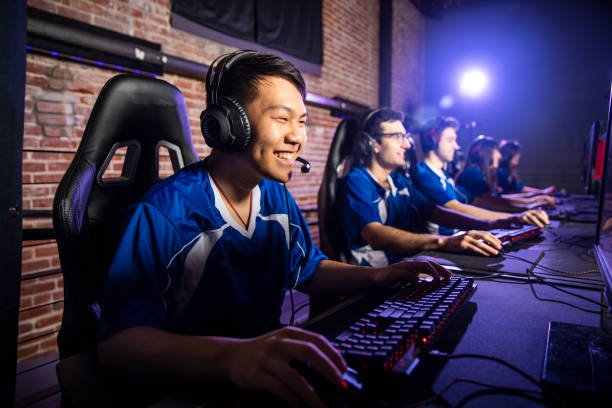The rise of E-sports has sparked a major debate in collegiate sports. With competitive gaming growing into a billion-dollar industry, many universities are considering whether e-sports should be part of their official athletic programs. Supporters argue that esports require skill, teamwork, and strategy, just like traditional sports. However, critics believe gaming lacks physical exertion and should not be treated as a collegiate sport.

The Rise of E-sports in Colleges
- Growing Popularity: E-sports has gained a massive following, with professional leagues, sponsorships, and multimillion-dollar tournaments.
- University Investments: Colleges worldwide are investing in e-sports scholarships, gaming arenas, and training programs.
- Student Demand: Many students support the inclusion of e-sports, with gaming clubs growing rapidly across campuses.
- Major Competitions: Collegiate esports leagues, such as the National Association of Collegiate E-sports (NACE) and Tespa, have attracted top gaming talent.
- Industry Partnerships: Companies like Twitch, Intel, and Nvidia are investing in collegiate e-sports programs, recognizing the potential of young talent.

Arguments in Favor of E-sports in College Athletics
1. Skill and Strategy
- E-sports requires quick reflexes, hand-eye coordination, and mental agility.
- Games like League of Legends and Valorant demand teamwork, leadership, and strategy.
- Many skills developed in e-sports, such as problem-solving and multitasking, are transferable to other professional fields.
2. Scholarships and Career Opportunities
- Universities are offering esports scholarships, similar to traditional sports.
- Gaming careers, including professional play, coaching, and streaming, are becoming lucrative.
- The gaming industry offers various job roles beyond playing, such as game development, marketing, and event management.

3. Inclusivity and Accessibility
- E-sports allows students who may not participate in physical sports to compete at a high level.
- It provides opportunities for individuals with disabilities to engage in competitive play.
- Gender diversity in esports is increasing, with more women and non-binary players entering the space.
Arguments Against E-sports in College Athletics
1. Lack of Physical Activity
- Traditional sports involve physical endurance, whereas gaming is primarily sedentary.
- Critics argue that classifying esports as a sport could undermine traditional athletic programs.
- Some argue that esports do not encourage a healthy, active lifestyle, which is a core principle of collegiate athletics.

2. Health Concerns
- Excessive gaming can lead to issues like eye strain, poor posture, and mental stress.
- Unlike traditional sports, esports do not emphasize fitness or physical well-being.
- Sleep deprivation and burnout are common issues among esports players who train for long hours.
3. Financial and Ethical Concerns
- Colleges investing in esports may divert funds from traditional sports programs.
- Some critics argue that promoting gaming could encourage unhealthy screen time habits.
- Sponsorships from gaming and tech companies might influence college esports programs in ways that differ from traditional sports sponsorships.

The Middle Ground: Possible Solutions
- Separate E-sports Programs: Some suggest creating independent e-sports departments rather than merging them with athletic programs.
- Fitness Requirements: Implementing fitness and health guidelines for esports players to maintain overall well-being.
- Balanced Approach: Recognizing esports as a competitive activity but not equating it with physical sports.
- Education and Awareness: Schools can educate students on responsible gaming habits and emphasize a healthy balance between esports and physical activity.
- Collaboration Between Traditional and E-sports Programs: Some universities are exploring hybrid programs that incorporate physical training for esports players to promote overall wellness.
Conclusion
The debate over esports in collegiate athletics is far from over. While e-sports continues to grow, it challenges traditional definitions of sports and competition. Colleges must weigh the benefits and concerns carefully, ensuring that esports programs complement rather than replace traditional athletics. As technology evolves, so too will the way we define sports in the academic world.
E-sports is undeniably shaping the future of competition and entertainment. Whether or not it is fully integrated into collegiate athletics, it has already secured its place in the modern sports landscape. The challenge for universities is to create programs that balance innovation, inclusivity, and tradition to serve the best interests of students and athletes alike.
NBA Shockwave: Luka Dončić Joins Lakers in a Game-Changing Trade






